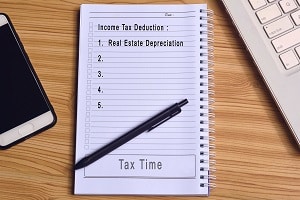
Business Advisory Services
Everything you need to help you launch your new business entity from business entity selection to multiple-entity business structures.
Table Of Contents

Posted Tuesday, August 27, 2024
There are some over-arching themes and concepts for all small business and rental property tax deductions. The expense must be-
Let’s break these down. An ordinary expense is one that is common and accepted in your field of business, trade, or profession. A necessary expense is one that is helpful and appropriate, although not necessarily required, for your business. In Samp v. Commissioner, Tax Court Memo 1981-706, an insurance agent had a handgun since he traveled to an area with a recent unsolved murder. The Tax Court responded with “A handgun simply does not qualify as an ordinary and necessary business expense for an insurance agent, even a bold and brave Wyatt Earp type with a fast draw who is willing to risk injury or death in the service of his clients.”
You must appreciate a Wyatt Earp reference from a Tax Court judge. Ouch. Clean up on aisle Allstate.
The expense must be paid or recognized in the current year. Expenses that were paid but not deducted in previous years cannot be “caught up” by deducting them today without amending your prior tax returns (which are easy to do, and should be done if there is money to be had). There is some wiggle room by paying expenses in advance. Under Treasury Regulations 1.263(a)-4(f) there is a rule called the 12-month rule. This allows you to deduct in full an amount where the benefit received from paying the expense spans two tax years.
Here is the exact wording-
(f) 12-month rule-
(1) In general. Except as otherwise provided in this paragraph (f), a taxpayer is not required to capitalize under this section amounts paid to create (or to facilitate the creation of) any right or benefit for the taxpayer that does not extend beyond the earlier of-
(i) 12 months after the first date on which the taxpayer realizes the right or benefit; or
(ii) The end of the taxable year following the taxable year in which the payment is made.
An example you see often is a one-year rental lease that starts July 1 and ends June 30 the following year. If you pre-paid the entire lease amount, you can deduct the entire amount since the benefit (the use of the rental space) is 12 months. However, let’s say the lease term started February 1 of the following year, but you prepaid the entire amount December 31 of the current year. Since the benefit extends past the end of the following tax year, none of it is deductible in the current year and only a portion is deducted the following year.
Just because you can deduct an expense in one lump sum, doesn’t mean that you should. Remember the conversation about depreciation, tax planning and increased marginal tax rates in the future? In other words, if your taxable income is going to be higher next year, then keep some of the tax deductions in your pocket to whack against the higher income.
The expense must be related to your rental property and its operations- that seems obvious, but it can trip people up especially with things like education and travel. Finally, the expense, specifically in the context of travel, lodging and meals, must not be lavish or extravagant. IRS Publications 463 Travel, Gift and Car Expenses states-
Lavish or extravagant.
You can’t deduct expenses for meals that are lavish or extravagant. An expense isn’t considered lavish or extravagant if it is reasonable based on the facts and circumstances. Meal expenses won’t be disallowed merely because they are more than a fixed dollar amount or because the meals take place at deluxe restaurants, hotels, or resorts.
This comes directly from IRC Section 162 which reads in part-
(a) In general
There shall be allowed as a deduction all the ordinary and necessary expenses paid or incurred during the taxable year in carrying on any trade or business, including-
(1) a reasonable allowance for salaries or other compensation for personal services actually rendered;
(2) traveling expenses (including amounts expended for meals and lodging other than amounts which are lavish or extravagant under the circumstances) while away from home in the pursuit of a trade or business
